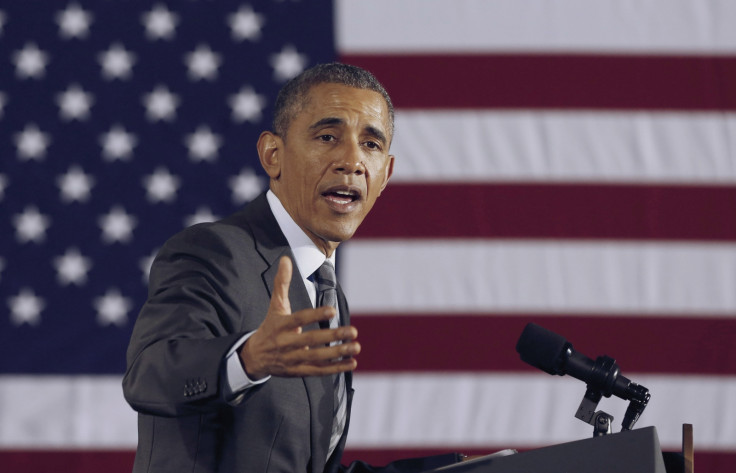Obama attack on EU treatment of US tech companies branded 'out of line' by European Commission

The European Commission has strongly defended itself against remarks made by Barack Obama which accused the EU of intentionally setting up commercially-driven roadblocks to prevent US technology companies from operating here.
Obama claimed these roadblocks were put in place to stop US tech companies like Google and Facebook from doing business in Europe and competing fairly with homegrown rivals.
When asked during an interview about Europe's investigations into the two US tech giants, Obama said they were "more commercially-driven than anything else."
Obama also accused European technology companies "who, you know, can't compete with ours," of "essentially trying to set up some roadblocks for our companies to operate effectively there."
The US president is referring to antitrust investigations held by the European Commission against Google, one of which requested the company more clearly signpost sponsored search results, and results which link users to Google's own services.
In the interview, with US technology website Re/Code, Obama said: "We have owned the internet. Our companies have created it, expanded it, perfected it in ways that [European companies] can't compete. And oftentimes what is portrayed as high-minded positions on issues sometimes is just designed to carve out some of their commercial interests."
Obama singled out Germany in particular, saying: "There are some countries like Germany, given its history with the Stasi, that are very sensitive to these issues."
Out of line
A European Commission spokesperson told the Financial Times: "This point - that regulations are only there to shelter our companies - is out of line. Regulations should make it easier for non-EU companies to access the single market. It is in [US companies'] interest that things are enforced in a uniform manner."
In recent years, the EU has tried to control US companies' tax avoidance efforts, as well as prevent companies from taking a monopolistic stranglehold of any one market - such as Google in the internet search sector. Another example is the Commission's fining of Microsoft for not providing Windows users with a choice of internet browsers beyond its own Internet Explorer.
In 2014, the European parliament backed a motion which called on regulators to consider the breakup of Google, prompting the Commission to take a tougher stance on the company.
Also last year, Google was made to comply with Europe's "right to be forgotten" which allows people to request their personal details are removed from the company's search engine results.
Catalan MEP Ramon Tremosa told the FT: "President Obama forgets or maybe isn't aware that among the dozens of complaints in the Google antitrust case, there are several US companies."
Tremosa added: "Some companies, like [search engine] Yelp, have no problem going public. Others don't want to attack Google only because they fear retaliation measures, such as demotion/exclusion and penalties supposedly applied by Google to some rival companies."
© Copyright IBTimes 2024. All rights reserved.






